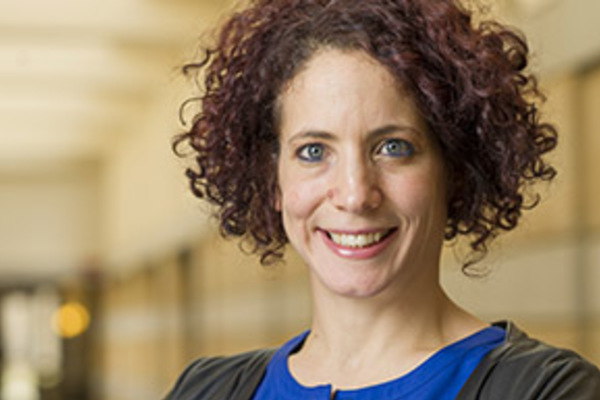Contending Modernities welcomes our newest co-director Dr. Atalia Omer. As a scholar trained in the theories and methods of the study of religion she brings expertise in religion, conflict and peacebuilding as well as attention to conceptual questions of modernity and secularism. CM asked Prof. Omer a few questions about her approach to the unfolding work of Contending Modernities.
What interests you most about the interactions between religious and secular forces in the modern world?
As a scholar trained in theories and methods in the study of religion, with a background in Islamic and Jewish Studies and the Modern West as a historical complex, I am especially interested in examining two complementary dynamics. First, I explore how religious meanings participate in social, political and cultural formations. Second, I analyze how interpretative and critical work on religion intersects with efforts to think about issues related to conflict and peacebuilding. I am interested in research focusing on processes of religious innovations, whether they take place within the realm of feminist engagements with traditions, or through sociocultural and political interactions with others in pluralistic contexts. I do not view modernity or the modern, in this respect, as necessarily involving epistemological violence with respect to religious traditions. Modernity’s challenge of pluralism demands that we think substantively about political categories of citizenship and the relevance of the intercultural elastic tradition of human rights to religious innovation, change, and engagement with plurality on social, political, and religious levels of interactions.
Why are initiatives such as Contending Modernities important in the current global political climate?
Religion quite literally exploded onto the screens of analysts of international relations through the events of September 11. These events have forced many to overcome their secularist myopia. At the same time, there is still a general tendency to analyze religion in terms of form and function. Too little consideration is given to hermeneutical engagement with content. I think this is an area where Contending Modernities can greatly contribute to deepening literacy and nuance to the analysis of religion in a global context. Similarly, at a time when most individuals inhabit spaces defined by plurality and pluralism, the kind of sensibilities Contending Modernities is underscoring — religio-cultural interpretations, challenges, and intersections — will prove invaluable both on the level of theorizing religion and secular modernity as well as in shaping public discourse on religion and modern pluralities.
What is your vision for Contending Modernities as a research and public education initiative?
Contending Modernities has accomplished an impressive amount of work in its first phase. It established working groups that research globally central questions pertaining to the research initiative. These working groups produced or are still in the process of producing articles and monographs which will greatly contribute to research as well as potentially to outreach and education.
Moving to the next phase, I think that we can intensify our blog presence and communication channels with journalism that engages religion. Other areas of change will include cultivating a more robust engagement with the secular as a discursive tradition as well as various threads of humanism, increasing gender diversity of the participants and involving more early and mid-career scholars in leadership and framing of the substantive directions of working groups.
Similarly, I think that CM can make productive interventions into the theoretical debates that currently animate the academic study of religion. I’m particularly excited about the formation of a small Theory Task Force that will examine and analyze synthetically the research produced thus far by the various working groups. This task force will give particular attention to conceptual and theoretical questions concerning religion and modernity and focus upon gender, identity, and lived versus official religion. In this way, CM can establish itself as offering cutting edge interventions in key areas of research in religious studies.
A lot has been written about secular modernity and critiques of secularism, I am convinced that CM can take the conversation to the next phase. While the project initially focused on Muslims, Catholics, and secular as three discursive traditions, my hope is that we will both broaden the scope to other traditions and, in particular, Judaisms and Protestantisms because the essential task of articulating robust accounts of the “secular” and of modernity and modernities requires that we will engage their discursivity as well.
Another item on my wish list is to connect the scholarship of CM to the study of the subfield of religion, conflict, and peace (RCP), an already established strength of the Kroc Institute for International Peace Studies. The kind of discussions unfolding in CM can embolden research and praxis in RCP and vice versa. There are crucial intersections and synergies to be explored.

